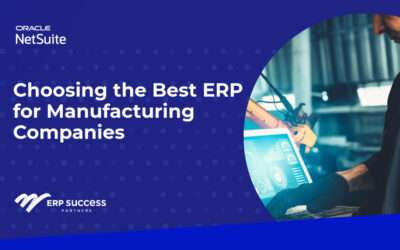Being able to access and act on real-time data has become table stakes for most organizations in today’s fast-paced, competitive business world. The days of making decisions based solely on historical data—or, maintaining data in “silos” that only certain departments or decision-makers could access—are long gone. To maintain and grow their market share, companies need access to real-time, accurate data across the entire organization.
“Most organizations understand the profound impact that data is having on modern business,” CIO points out in Better, faster decisions: Why businesses thrive on real-time data. Citing a recent Foundry study, the magazine says 88% of IT decision-makers agree that data collection and analysis have the potential to fundamentally change their business models over the next three years.
“The ability to pivot quickly to address rapidly changing customer or market demands is driving the need for real-time data,” CIO says. “But poor data quality, siloed data, entrenched processes and cultural resistance often present roadblocks to using data to speed up decision making and innovation.” Real-time data also helps companies:
- Improve organizational agility
- Quickly detect and address operational problems
- React quickly to market shifts
- Create a more personalized customer experience
- Identify and respond to potential security issues
“Tapping into real-time data provides decision-makers with immediate access to actionable intelligence,” CIO reports, “whether a security alert on an attack in-progress or data on a supply chain issue as it happens.”
Fast Access to Mission-Critical Information
Companies that want fast access to accurate, real-time organizational data often turn to enterprise resource planning (ERP) platforms like NetSuite for help achieving this goal. With an implementation partner like ERP Success Partners in their corner, these organizations get the insights, dashboards, analytics and reporting they need to compete more effectively in any market conditions.
“Since an ERP records and stores all the data users input, it makes for an excellent business intelligence tool,” Kim O’Shaughnessy writes in 8 Reasons Why ERP is Important. “As long as your vendor provides strong functionality, ERP software makes it easier and faster for your team to generate various reports. Reports that could take days of research and compilation without an ERP takes just minutes.”
Most ERP solutions also provide a customizable dashboard so executives can see reports when they first log into the system. These reports may include everything from income and expense statements to custom key performance indicators (KPIs) that offer insight into certain functions.
“The ability to have access to these reports quickly enables you and your team to make better decisions more quickly,” O’Shaughnessy points out. “You no longer need to rely on your IT staff to generate the reports that you need. Lastly, reports typically come with access levels, ensuring only relevant staff see valuable company data.”
Tracking Progress and Performance
NetSuite gives companies all the applications they need to run their businesses efficiently while nurturing growth. Organizations of all sizes and across dozens of industries run on the ERP, “harnessing the vast capabilities of its applications for finance, supply chain, customer relationship management (CRM), human resources, professional services, ecommerce and more,” Ian McCue writes in What Is NetSuite and How Does It Work?
Here’s how it works: Because all of NetSuite’s modules share a common database, information from across the system updates in real time and is accessible to authorized users across business functions. “That gives leaders a real-time, 360° view of the business,” McCue adds, “so they can see which processes or departments are exceling and which need a boost.”
As a unified repository for all organizational data, NetSuite provides businesses visibility and control through a single source of real-time information and the ability to add modules on the fly. Here are five other points that McCue says separate NetSuite from other ERP options:
- Unified view of the business: NetSuite empowers any firm to run its entire business from a single platform.
- Native integration. All NetSuite applications feed information into, and pull it from the central database to ensure there’s only one source of knowledge.
- True cloud. NetSuite was born in and built for the cloud.
- Deep reporting capabilities.“The vast amount of data flowing from departments and business units into the NetSuite platform fuels its extensive reporting capabilities,” McCue writes.
- Built-in flexibility. Whether you’re a multinational brand with six subsidiaries or a startup still building your first product, NetSuite can be customized to accommodate your specific processes and corporate structure.
Smarter, Faster Decision-Making
NetSuite’s SuiteAnalytics analytics and reporting capabilities provide real-time visibility into company operational and financial performance across all business functions. Prebuilt and easily customizable, these reports and analyses make it easy to get the data you need, while role-based dashboards and key performance indicators (KPIs) help you keep an eye on business performance.
Native to NetSuite, SuiteAnalytics gives you fast access to the data you need to improve financial and operational performance across one or many subsidiaries, departments and teams. Using NetSuite as the foundation, ERP Success Partners helps companies across many different industry sectors take advantage of all that NetSuite has to offer.
Contact us today to find out how we can help you get fast, easy access to real-time data across your entire organization.






